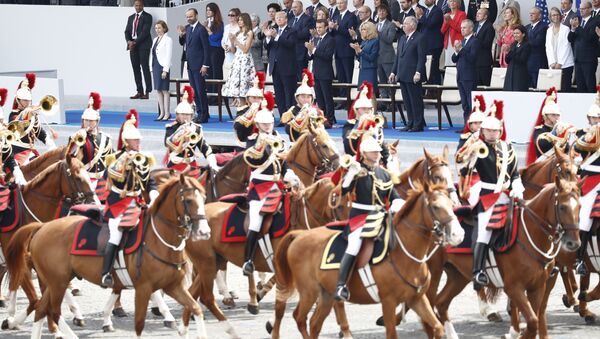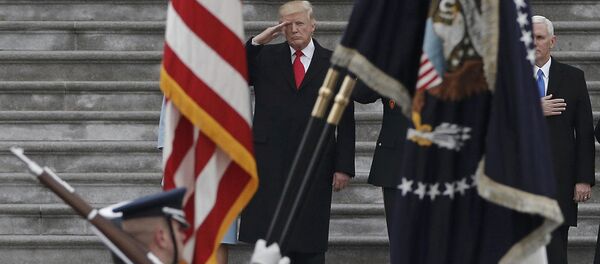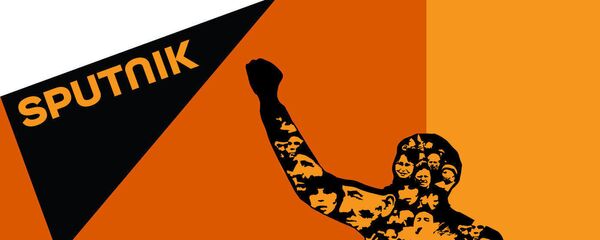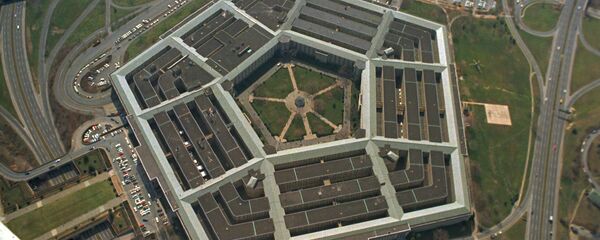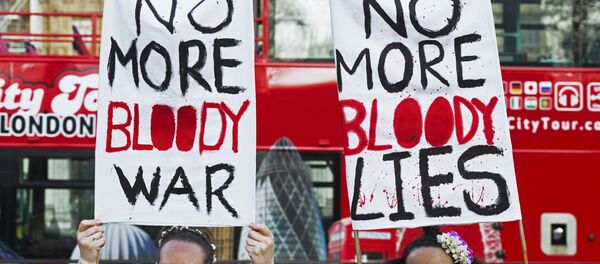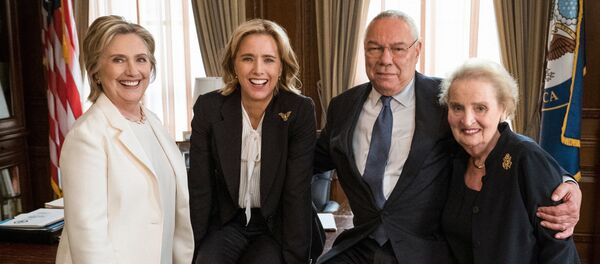In Europe, November 11 commemorates Armistice Day, a somber holiday marking the armistice preceding the peace treaty that ended World War I in 1918. However, in the United States that day is Veterans Day and carries few of the same connotations, in large part because US forces did not see significant action until the last year of that war.
The mood of Armistice Day clashes sharply with that of Bastille Day, July 14, which France celebrates as the beginning of the French Revolution in 1789, when the Bastille fortress in central Paris was stormed by the Paris militia to seize weapons they later used to arrest the monarchy and form a republican government. Huge festivities adorn Paris, topped off by an illustrious parade of French military units down the Champs Elysee.
It was that parade in 2017, however, and not one the on Armistice Day, that made the US president's eyes glow and demand one for himself the following year.
But on Thursday, news broke that the parade's estimated cost was over $90 million, several times more than initial estimates of $12 million, and they called it off for 2018, with Trump saying instead he would fly to Paris to mark the end of the Great War there.
"The Department of Defense and White House have been planning a parade to honor America's military veterans and commemorate the centennial of World War I," Defense Department spokesman Col. Rob Manning said Thursday. "We originally targeted November 10, 2018, for this event but have now agreed to explore opportunities in 2019."
However, an increasingly large alliance of anti-war groups has been preparing to protest the Washington, DC, war parade on November 10 for months, forging a new unity thanks to the increasing contradictions between the US government's priorities waging war abroad and the decreasing quality of life and increasing police state at home.
"The ANSWER Coalition has already obtained permits for space for a massive demonstration right along the parade," wrote Act Now to Stop War & End Racism (ANSWER), one of the groups planning on protesting the parade, on its website on August 16. This past weekend, ANSWER organized a massive counter-protest in Lafayette Park, across the street from the White House, against the fascist "Unite the Right 2.0" rally. That counter-protest drew upwards of 15,000 people from many of the same organizations that plan to turn out in November as well, which some activists considered a shot across the Trump administration's bow.
@answercoalition estimated there are 15,000 protestors at Lafayette Park standing up to white supremacy, racism, and fascism. @cvillenews_desk pic.twitter.com/FqnLFcoYHW
— Natalie Jacobsen (@JacobseNatalie) August 12, 2018
Joe Lombardo, co-coordinator of the United National Antiwar Coalition (UNAC), another member of the anti-war activist alliance, told Radio Sputnik's By Any Means Necessary Friday that "the movement-organizing effort played a role" in derailing the parade from its initial schedule.
"It became clear from our organizing efforts that… there were 187 groups from across the spectrum of progressive organizations that were prepared to mobilize and organize to be at that parade," Lombardo told hosts Eugene Puryear and Sean Blackmon.
"That parade would have been watched by the entire world, and if they just saw a military parade of US military might, everybody would have seen that as a threat — as a threat from the United States that if you don't follow the dictates of Washington and Wall Street, this is what you will face. But with a mass mobilization of anti-war activists, the people around the world would've seen that the people in this country want peace and not war, and that was not the kind of message that Trump wanted to show. So I think the movement-organizing effort played a role in the decision," he said.
Lombardo pointed out that "Trump tried to say it was the increased cost, which was looking to be around $92 million," but that this was just "a drop in the bucket" compared to Trump's tax cuts for the rich or the $717 billion 2019 National Defense Authorization Act (NDAA) that he signed into law earlier this week. "So, $92 million means very little, and I don't think that could have been the major cause."
"There was push back from all sorts of people, even people that we don't usually think [would join anti-war efforts]," the organizer noted. "The American Legion, for instance, said, ‘We don't want to see a military parade until we can bring the troops home.' They actually said that in their message. So I think there was a tremendous pushback, and I think the movement-organizing was part of it, and I think that's the reason the parade was cancelled, and I think this is a big victory for peace activists around the world."
However, until such time as we can celebrate victory in the War on Terrorism and bring our military home, we think the parade money would be better spent fully funding the Department of Veteran Affairs and giving our troops and their families the best care possible.”
— The American Legion (@AmericanLegion) August 16, 2018
"There was unity among all the forces," Lombardo said, noting that such groups as UNAC, ANSWER, Peace Action, Code Pink, World Beyond War and Veterans for Peace had "all played a really important role" in postponing the parade. He noted that their ability to unite on this cause demonstrated the ability to unite on other causes as well. "I think we will continue to see unity, and I think we will continue to see large protests on that weekend."
Lombardo told Radio Sputnik that although Trump is not the progenitor of the US' warmongering policies, he thought the new-found unity among anti-war organizations was created by the particularly belligerent way that Trump has advanced those policies, particularly in Yemen and Syria.
"I think the parade is what brought us together." He noted, however, that differences still exist in the anti-war movement created by the "very sophisticated propaganda machine in this country" about the US' role in different conflicts, including those in Libya, Syria and Nicaragua, but "hopefully this will give us an impetus to say that whatever differences we have, we can discuss, but can still be marching down the same street at the same time, and we can put forward an anti-war message that can have a real effect on our government, and we can be a force in determining that policy."
Lombardo told Sputnik that "a key aspect of demonstrations is the educational effect, and to try to show people that there's another narrative besides the one that they're hearing on MSNBC and CNN." He also noted another beneficial aspect that comes from organizing demonstrations. "It's really the movement, not one demonstration, that's going to make a difference."
Lombardo said that Americans can no longer look to the Democratic Party to oppose the Republican Trump administration's war agenda because in many respects, the Democrats are to the right of Republicans on war, pushing for more severe actions against Russia, North Korea and Iran, and are opposed to negotiations due simply to their hatred for Trump.
"There was never a war that Hillary Clinton didn't like," Lombardo noted, pointing out that "she was clearly more warlike in that [2016] election" and that things like the "disenfranchisement of black communities, poor people, prisoners, taking the vote away from these people," as well as "the money that goes into politics, all of these things are the real reasons why more people who were eligible to vote did not vote in the last presidential election," not Julian Assange or stolen DNC emails or supposed interference by a foreign entity in the election.
"Every poll shows we have a majority" of the country supporting peace, Lombardo said.
